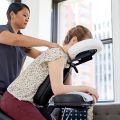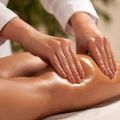7 Ways to Reduce Anxiety at Home

Anxiety disorders impact around 40 million people in the United States. In fact, it is the most common mental health issue in the United States. Living with anxiety, whether from short-term stress or a long-term disorder, may be difficult, but there are things you can do to support yourself.
Starting with a little behavioral modification, such as going for an afternoon stroll, may make a significant difference in how you feel. There are also other little behaviors you may develop to help you feel better when your anxiety levels are particularly high. Here is a list of seven ways to reduce anxiety at home.
1. Learn more about your condition
Discuss your anxiety with your doctor or mental health professional. Discover what is causing your individual issue and which treatment options may be most effective for you. Involve your family and friends and ask for their assistance.
2. Limit your caffeine consumption
Caffeine is not your friend if you suffer from persistent anxiety. Caffeine might produce uneasiness and jitters, which aren't helpful if you're stressed. Caffeine may induce or aggravate anxiety problems. It may also trigger panic episodes in those suffering from panic disorder. Caffeine withdrawal may considerably relieve anxiety symptoms in some people.
However, if you want to reduce or eliminate caffeine, you should begin by gradually lowering the quantity of caffeine you drink each day. To quench your thirst, start substituting these drinks with water. This will not only satisfy your body's thirst for fluid, but it will also assist in draining caffeine from your system and keep you hydrated.
3. Take a walk
Exercise has long been used to alleviate anxiety. A quick walk not only increases your levels of feel-good neurotransmitters, but it also clears your head and gets you breathing more deeply. Since anxiety is closely connected to shallow breathing, physical activity can be quite beneficial. According to research, those who exercise hard on a daily basis are 25% less likely to develop anxiety.
4. Meditate
Meditation can help to slow down rushing thoughts, making stress and anxiety easier to handle. A variety of meditation approaches, including mindfulness and yoga-based meditation, may be beneficial. In therapy, mindfulness-based meditation is becoming increasingly popular. Meditation can be quite useful for people who suffer from mood and anxiety issues.
5. Try aromatherapy
Aromatherapy is the use of essential oils to improve your health and well-being. Certain smells can help you improve your mood, relax, and relieve anxiety. Essential oils can be used in a variety of ways. You may use a diffuser, or lava bead bracelet, or blend your favorite aroma with a carrier oil to apply to your wrist or neck. Anxiety-relieving scents include lavender, ylang-ylang, grapefruit, clary sage, and bergamot.
6. Check your vitamin D levels
Vitamin D is related to serotonin levels, the mood-boosting hormone that helps you focus and feel calm. Some studies have discovered a relationship between anxiety disorders, depression, and lack of vitamin D. You should consult a therapist and your primary care physician about getting vitamin D levels tested.
This can assist in determining whether a deficit is contributing to your anxiety symptoms. After that, you can work with a doctor to identify the next measures to improve your vitamin D levels. You may boost your vitamin D levels by spending time in the sun, eating fatty fish, consuming fortified foods, or taking a supplement.
7. Get more sleep
A lack of sleep may activate neural connections that make us prone to anxiety. The brain areas that help us control emotions (the ones that keep us calm and less nervous) are particularly susceptible to sleep deprivation. If you have difficulties sleeping, chamomile, passionflower, and lemon balm may be beneficial.
Other articles and publications:
Articles and publications of other companies:
- +1 (646) 270-9836
- Long Island City
- grantny.com












